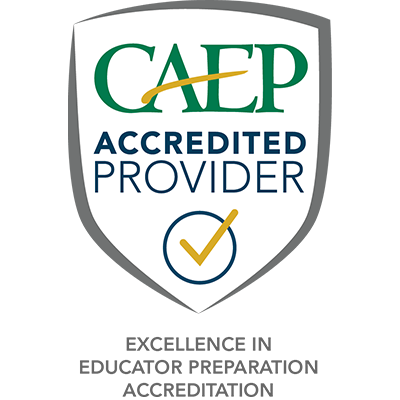English as a Second Language Bridge Graduate Certificate (online)
Ready to add an English as a second language endorsement to your Michigan teaching certificate? Our online certification program enables you to earn your state endorsement and apply your credits to the Master of Education in Teaching and Learning with a concentration in ESL.
Important dates
-
Applications should be submitted at least three weeks before the start of the semester
Program highlights
- Earn your Michigan ESL endorsement
- 100% online
- Affordable tuition
- Apply your coursework to the M.Ed. degree
- Fully accredited by the Council for the Accreditation of Educator Preparation (CAEP)
What will you learn in the online ESL certificate?
In courses ranging from linguistics and sociology to teaching methodologies, you’ll build strong language proficiency skills, cultural sensitivity, and awareness. You’ll also hone your teaching skills, from cross-cultural communication to classroom management to language assessment.
After the certificate program, whether or not you pursue the M.Ed., you’ll gain advanced expertise in teaching English as a second language and build the skills you need for career advancement and personal growth. You’ll also prepare to promote educational equity and make meaningful contributions to the education of English language learners at all levels.
Curriculum
The courses you'll take all ead to to a PK-12 endorsement.
Learn more about the ESL graduate certificate program curriculum.
For the grade band endorsement, it is a total of 30 credit hours, which includes the endorsement courses (21 credit hours, please see below), as well as three elective courses (three credits each) at the 6000+ level in the College of Education. (Note: Grade band refers to the certification level such as K-8, 6-12 or K-12.)
For the K-12 endorsement, it is a total of 33 credit hours, which includes the endorsement courses (24 credit hours, please see below), as well as three elective courses (three credits each) at the 6000+ level in the College of Education.
Semester I
| Courses | Cr. Hrs. |
|---|---|
| Total | 6 |
| LED 6510 Second Language Acquisition and the Teaching of Grammar | 3 |
| LED 6580 Culture as the Basis for Language Teaching | 3 |
Semester II
| Courses | Cr. Hrs. |
|---|---|
| Total | 6 |
| LED 6520 Teaching English as a Second Language/Foreign Language: Methods I | 3 |
| LED 6555 Integration of Language and Content in Language Teaching | 3 |
Semester III
| Courses | Cr. Hrs. |
|---|---|
| Total | 6 |
| BBE 6850 Applied Linguistics: Issues in Bilingual Education | 3 |
| RLL 6700 Second Language Literacy Development K-12 | 3 |
Semester IV
| Courses | Cr. Hrs. |
|---|---|
| Total | 6 |
| LED 6565 Assessment in Language Teaching | 3 |
| BBE 5500* Introduction to Bilingual/Bicultural Education | 2 |
| TED 5900* Post-Certification Clinical Experience | 1 |
*Additional course for K-12 endorsement
Apply certificate coursework to an M.Ed. degree
You can apply all of your coursework from your endorsement training to the Master of Education in Teaching and Learning degree with a concentration in ESL. This enables you to streamline your path to teaching English as a second language and gives you higher earning potential and career opportunities than an endorsement alone.
Get ready to teach English as a second language with clinical experience
WSU’s clinical experience course provides you with hands-on, real-world classroom experience. You will gain a valuable understanding of classroom management, cultural competence, feedback and improvement, and language assessment as you apply your theoretical knowledge to practical situations.
ESL teaching careers
From PK-12 schools and adult education centers to language institutes and online learning platforms, the demand for educators who can empower English language learners is growing.
In addition, teaching ESL is a rewarding experience on both a personal and interpersonal level. By helping learners acquire the English language, you enable your students to communicate effectively in their second language, pursue higher education, and access better job prospects. You’ll also foster cultural understanding and bridge divides, promoting inclusivity and empathy in a diverse world.
Tuition and financial aid
Wayne State University is committed to affordable education. Our tuition and fees are lower than those of peer institutions in Michigan, and we award hundreds of scholarships each year.
Admission requirements
To be considered for admission, you must hold valid teacher certification in Michigan. Admission to this program is contingent upon admission to the Graduate School and the College of Education.
Applications to this program must be submitted three weeks before the start of the semester.
Prepare for your ESL endorsement at Wayne State University
Empower English language learners and advance your career with an ESL endorsement on your Michigan teaching license! Our online program prepares you to excel in today's diverse classrooms.
- Want to find out more about ESL education at Wayne State? Request more information
- Eager to get started? Apply now
Professional Licensure Program Disclosure
The University has determined that the curriculum of the initial teacher certification and endorsement programs at Wayne State University in the College of Education, leading to a credential as a certified teacher, meets the educational requirements for licensure or certification in all states. However, there may be specific state requirements beyond the reciprocity agreement.
Accreditation

CAEP_Accreditation
The College of Education educator preparation programs are accredited by the Council for the Accreditation of Educator Preparation (CAEP).
Accreditation means that a program meets the standards set by the academic and professional community. It’s a seal of approval indicating that the program prepares new educators to teach effectively.
Contact
Kathryn L. Roberts, Ph.D.
Professor and program coordinator
313-577-1509
eo9096@wayne.edu
Teacher Education Division
Phone: 313-577-0902